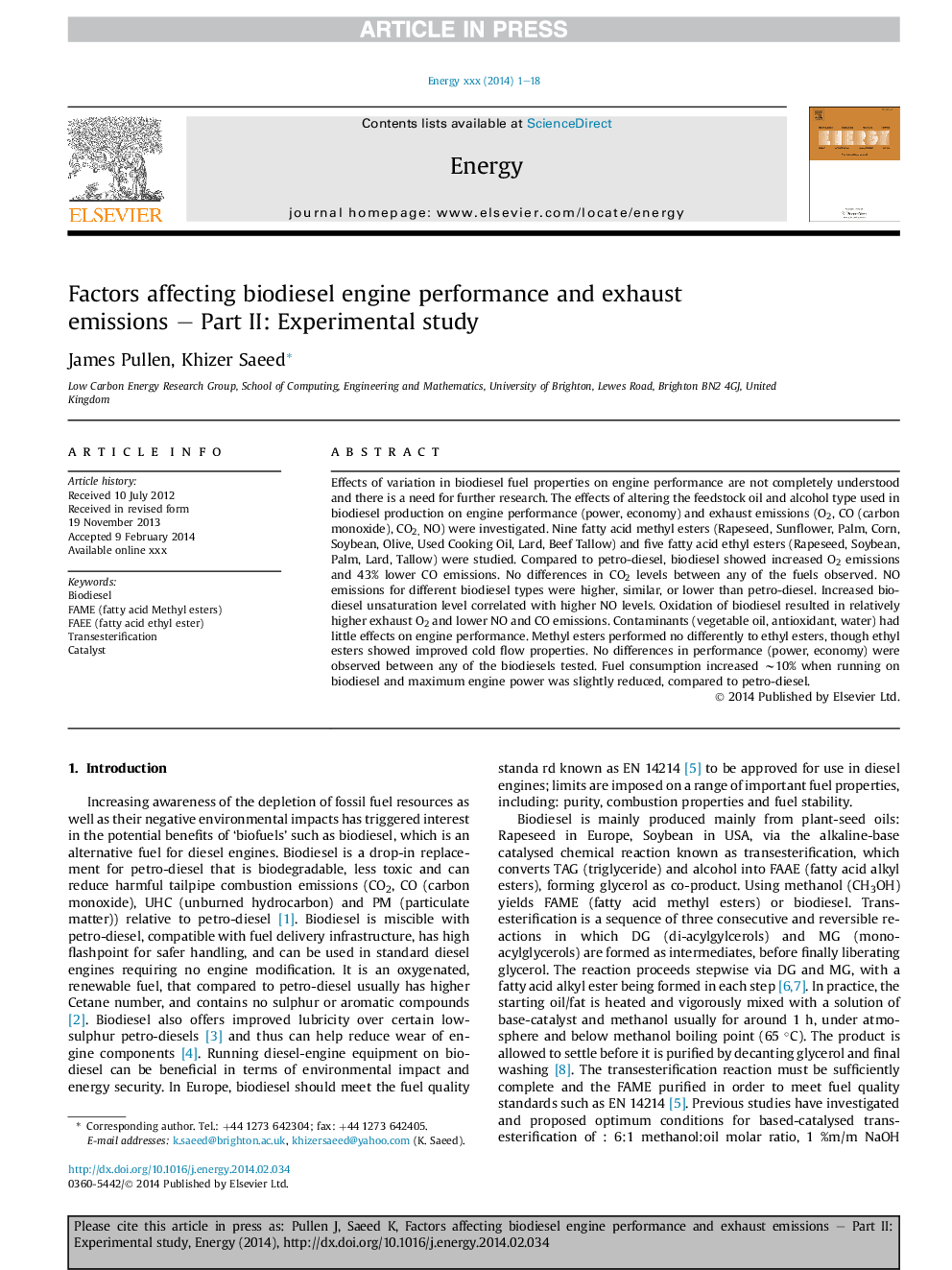| Article ID | Journal | Published Year | Pages | File Type |
|---|---|---|---|---|
| 8077230 | Energy | 2014 | 18 Pages |
Abstract
Effects of variation in biodiesel fuel properties on engine performance are not completely understood and there is a need for further research. The effects of altering the feedstock oil and alcohol type used in biodiesel production on engine performance (power, economy) and exhaust emissions (O2, CO (carbon monoxide), CO2, NO) were investigated. Nine fatty acid methyl esters (Rapeseed, Sunflower, Palm, Corn, Soybean, Olive, Used Cooking Oil, Lard, Beef Tallow) and five fatty acid ethyl esters (Rapeseed, Soybean, Palm, Lard, Tallow) were studied. Compared to petro-diesel, biodiesel showed increased O2 emissions and 43% lower CO emissions. No differences in CO2 levels between any of the fuels observed. NO emissions for different biodiesel types were higher, similar, or lower than petro-diesel. Increased biodiesel unsaturation level correlated with higher NO levels. Oxidation of biodiesel resulted in relatively higher exhaust O2 and lower NO and CO emissions. Contaminants (vegetable oil, antioxidant, water) had little effects on engine performance. Methyl esters performed no differently to ethyl esters, though ethyl esters showed improved cold flow properties. No differences in performance (power, economy) were observed between any of the biodiesels tested. Fuel consumption increased â¼10% when running on biodiesel and maximum engine power was slightly reduced, compared to petro-diesel.
Keywords
Related Topics
Physical Sciences and Engineering
Energy
Energy (General)
Authors
James Pullen, Khizer Saeed,
